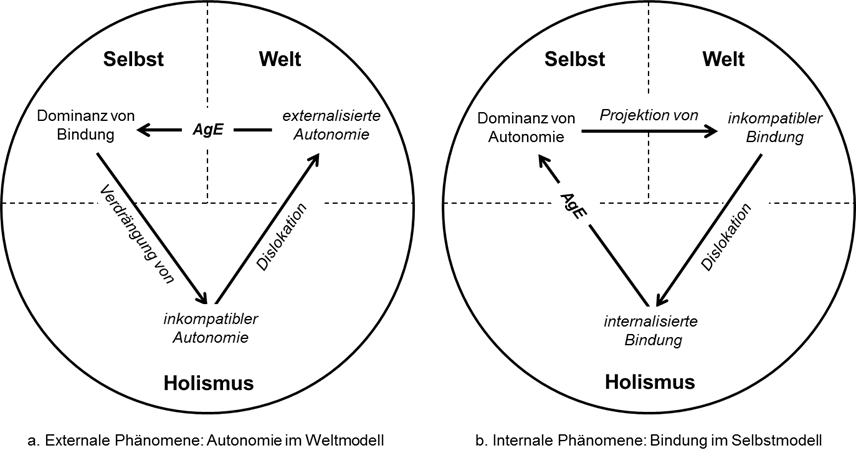In the past, scientific parapsychology was largely characterized by the assumption that paranormal phenomena and ExE are related to unknown information or signal transmissions. However, in view of the fleeting and non-local nature of extraordinary phenomena, classic transmitter-receiver concepts do not seem very plausible.
If we take dual-aspect monism as our starting point, psychophysical relationships are not based on direct interactions. Instead, we are dealing with correlations of mental and material aspects of an underlying and indiscernible wholeness. Structural correlations emerge from the symmetry breaking of psychophysically neutral holism as shown in Figure 1a. These are the familiar psychophysical correlations that have always posed the classical mind-body problem, but are considered ordinary because they are reliable and replicable.


